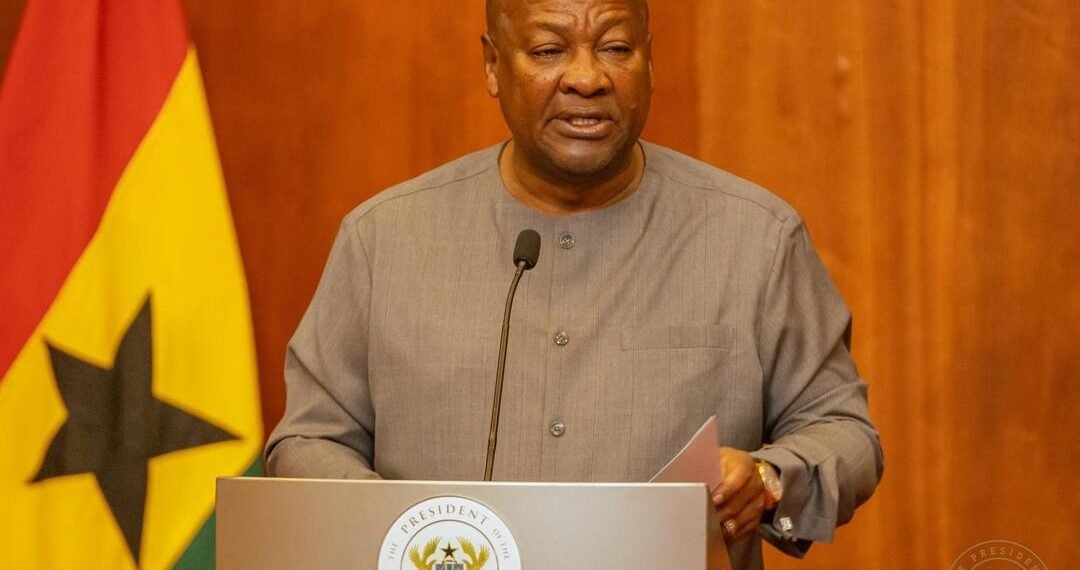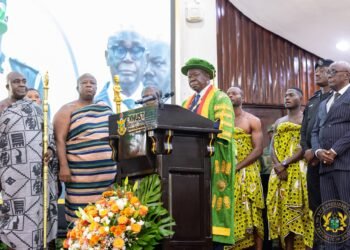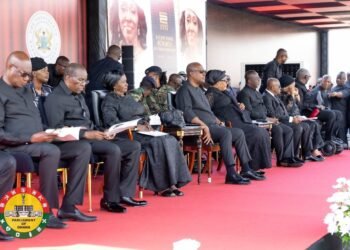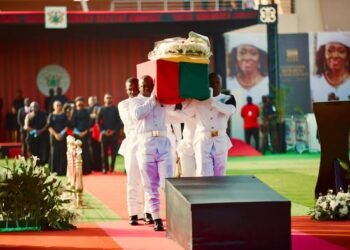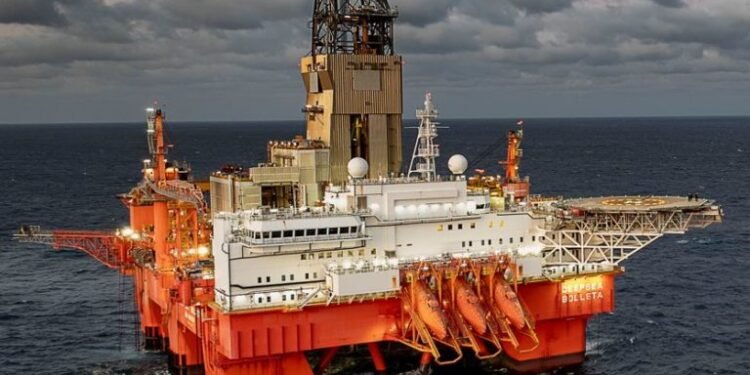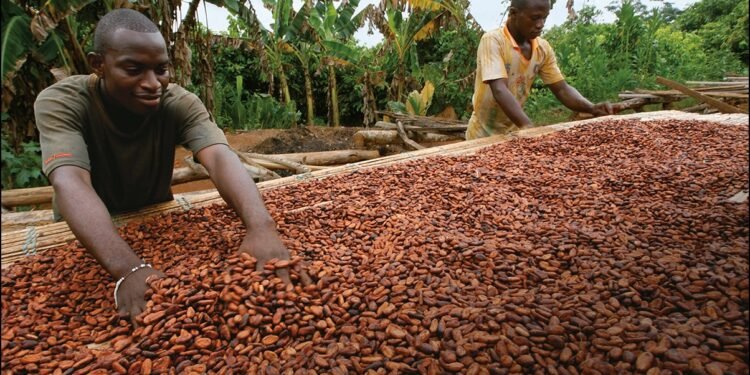President John Dramani Mahama has unequivocally reaffirmed his government’s deep-seated commitment to the holistic social and economic transformation of Northern Ghana.
This emphatic pledge was delivered during a significant courtesy call paid by the Overlord of Dagbon, Yaa Naa Abubakari Mahama II, accompanied by his distinguished chiefs and elders, at the Jubilee House.
The visit served as a powerful platform for President Mahama to outline a comprehensive development agenda for the Northern Region, rooted in strategic partnerships with traditional leaders, direct private investment, and practical, on-the-ground initiatives designed to uplift communities and foster sustainable growth.
Addressing the Yaa Naa, President Mahama began by acknowledging the traditional leader’s earlier commendations and expressing gratitude for the visit.
“Your Majesty, the development of the Northern Region remains a central priority of the government that I lead. I wish to reaffirm my commitment to the social and economic transformation of Northern Ghana, rooted in partnership with traditional authorities and anchored in direct private investment and practical investments in Northern Ghana”.
HE President John Dramani Mahama
Agriculture for Food Security
A primary pillar of this transformative agenda is agriculture and food security, crucial for a region largely dependent on farming.
President Mahama announced ambitious plans under the Northern Savannah Economic Transformation Program, targeting the development of over 10,000 hectares of irrigated land across key program areas, including Nasia, Dungu, and Kpolum.
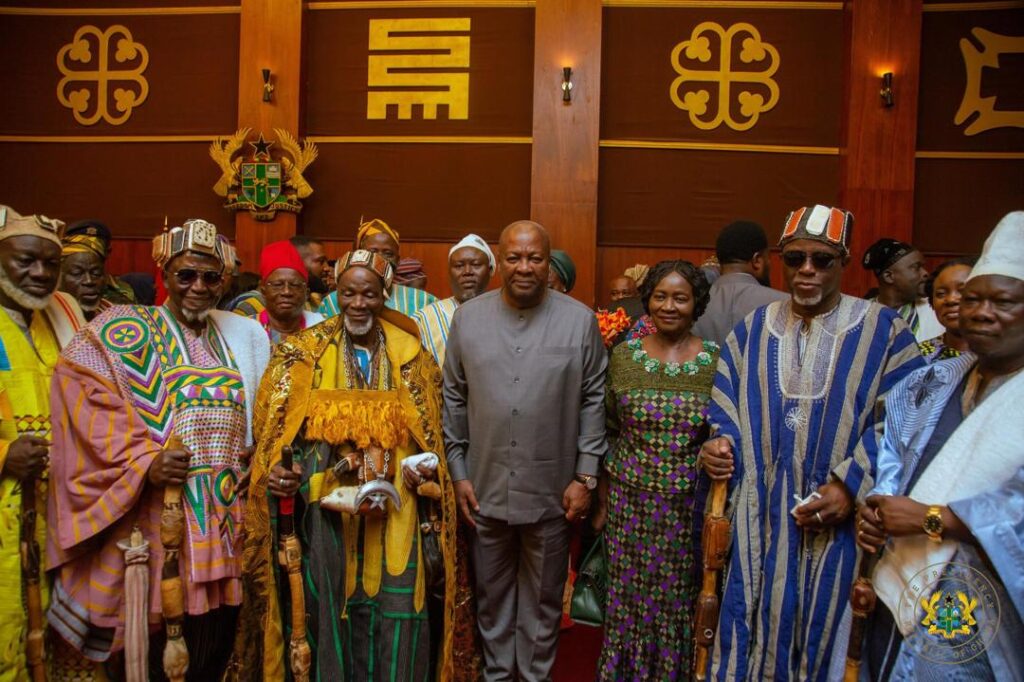
This monumental irrigation project is projected to generate employment for more than 8,000 young farmers, providing stable and sustainable livelihoods.
“We’re targeting three crops: rice, maize, and soya bean. It is designed to turn the Northern region into a major agro-industrial hub with Yendi, Savelugu, and Karaga as key agribusiness processing centres.”
HE President John Dramani Mahama
Furthermore, the government committed to significant investments in strengthening the shea and cashew value chains, with expanded processing centers earmarked for Tamale and enhanced market linkages in Tolon and Zabzugu.
These efforts are designed to benefit thousands of rural women, empowering them with sustainable livelihoods deeply rooted in their traditional knowledge systems and ensuring that their valuable contributions to the economy are recognized and remunerated.
Youth Development
Beyond agriculture, youth development stands at the very heart of the nation’s rebirth agenda. President Mahama highlighted that the 2025 budget has allocated substantial funding for the imminent take-off of the national apprenticeship program.
This initiative, being rolled out nationwide in partnership with vocational institutions and the private sector, according to the President, holds particular promise for Northern Ghana.
President Mahama indicated that over 5,000 young people from the Northern Region are expected to receive training in a diverse range of employable skills, including carpentry, welding, tailoring, advanced shea butter processing techniques, and various aspects of agribusiness.
“These efforts align with our broader vision of the 24-hour economy strategy, which will provide new job opportunities and extended business hours across agro-processing logistics and community services”.
HE President John Dramani Mahama
The President expressed his eagerness to launch a pilot 24-hour economic zone specifically within the Northern Region, signalling a tangible commitment to extending economic vibrancy beyond conventional daytime operations.
Improving Quality Healthcare
The health sector also received robust attention in the President’s address, with a clear commitment to improving healthcare access and infrastructure.
According to President Mahama, plans include the comprehensive rehabilitation of the Yendi Municipal Hospital, a crucial facility serving a wide population.
Additionally, two new Community-based Health Planning and Services (CHPS) compounds are slated for construction in Nakache and Panjaga, bringing essential primary healthcare closer to rural communities.
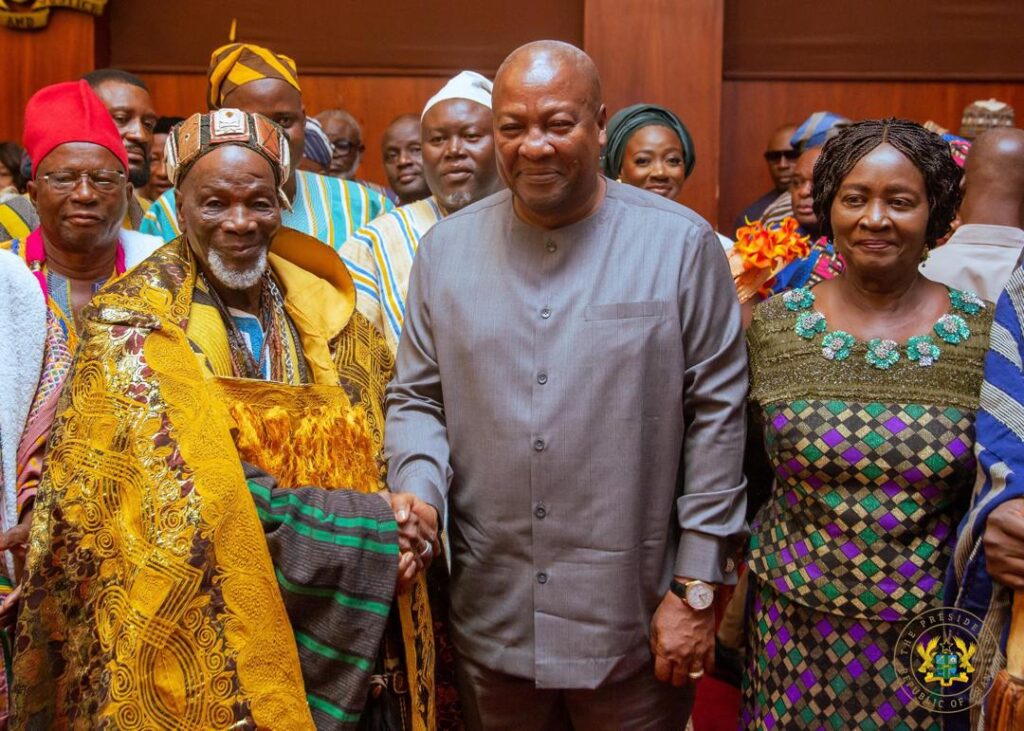
Complementing these infrastructure developments, the government intends to deploy 30 additional community nurses across rural Dagbon by December this year.
These initiatives, he noted, are inextricably linked to the government’s flagship policy framework, the Free Primary Healthcare, which fundamentally guarantees access to basic healthcare for every Ghanaian, irrespective of their geographical location or income level, ensuring equitable health outcomes.
Investment in Infrastructure
On the critical front of infrastructure, President Mahama detailed significant investments aimed at enhancing connectivity and mobility within the Northern Region.
The Northern Roads Improvement Corridor will see major upgrades, including the vital Tamale-Yendi-Katale Corridor, in addition to several feeder roads connecting Sang, Gushegu, Saboba, and Bumbuna that will all undergo extensive improvements, designed to significantly enhance mobility for farmers, traders, and goods, thereby facilitating economic activity.
Under the ambitious “Big Push Project,” President Mahama noted that the government is also committed to completing the remaining segments of the Eastern Corridor Road project, a crucial artery for linking the northern and southern parts of the country.
Three areas, including Oti, will receive particular attention in this regard, emphasising a regional approach to infrastructure development.
“The people of Dagbon have waited long for peace and so now they deserve progress and development. The time for promises has passed. What we must now deliver is results. Our people deserve water, roads, schools, clinics, and jobs.”
HE President John Dramani Mahama
Boasting Water and Sanitation
Addressing the historical narrative of the Northern Region being a symbol of poverty despite its vast potential, the President unveiled specific interventions for water and sanitation.
The National Community Infrastructure Development Fund, launched in 2025, will finance water and sanitation projects in 50 underserved communities in Dagbon, including Patinga, Lungde, and Nakwanduri.
Plans for small town water systems are also in motion for Wileesi and Bimbila with the President adding that the critical Yendi water supply system will be executed with funds secured from the European Union, an initiative that also encompasses the Tamale water expansion project and increased water supply for the Savannah Region, including Damango.
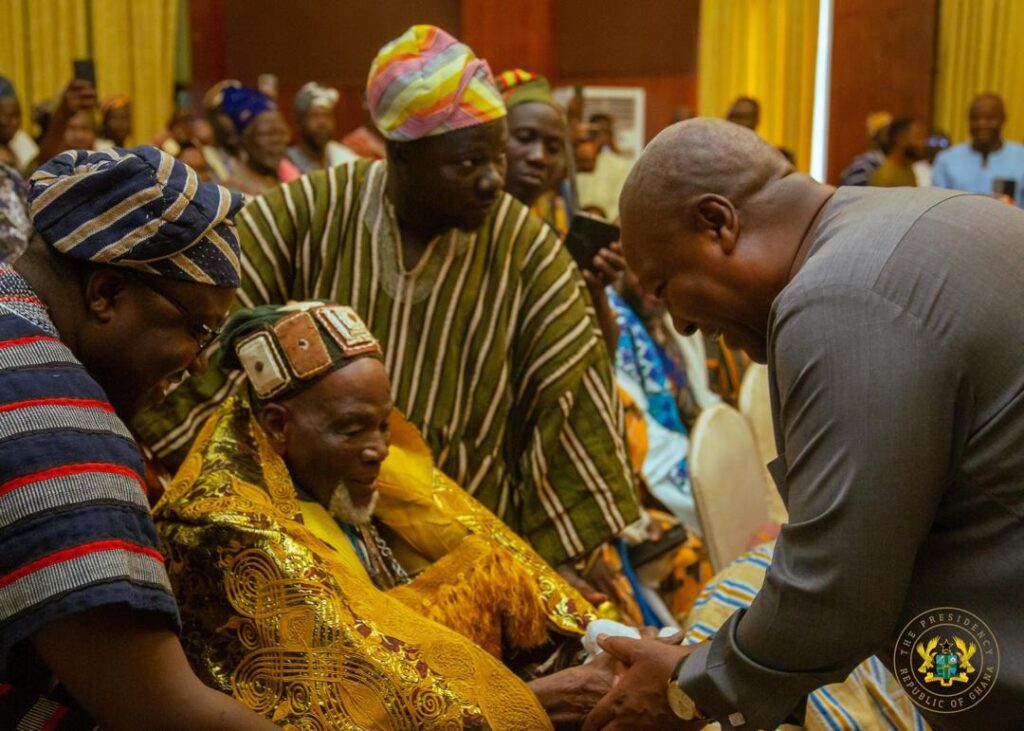
Crucially, President Mahama reiterated his government’s profound respect and commitment to the chieftaincy institution.
He announced the creation of a Traditional Leadership Support Fund under the 2025 budget, designed to finance the preservation of royal archives, the rehabilitation of palaces, and provide essential logistical support for traditional areas, including the Dagbon Traditional Council.
“We recognise that tradition is complementary to development. Tradition is foundational. This government will not sideline traditional rulers. We’ll partner with you. We’ll listen to your wise counsel. We’ll honour your place in the national architecture of governance.”
HE President John Dramani Mahama
This statement solidifies a working partnership that seeks to leverage the enduring wisdom and community influence of traditional leaders for accelerated national progress.
The President’s detailed exposition underscored a vision for Northern Ghana that is comprehensive, inclusive, and results-oriented.
The commitment to direct investments in agriculture, youth skills, health infrastructure, road networks, and water systems, coupled with a deep respect for traditional institutions, signals a new chapter of focused development.
READ ALSO: WAGPA Eyes Pipeline Expansion to Anchor Regional Gas Integration

